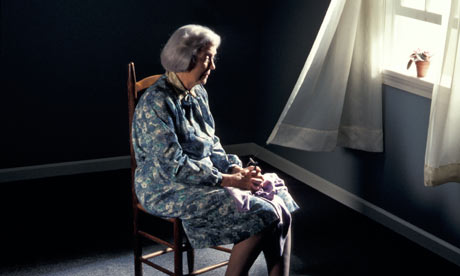Update (01/28) – The stories are now released and you can read them and the constellation’s report here.
We are taught to be resilient when we face hardships; we keep going through difficult challenges with optimism—in reality, many seniors who struggle with poverty are willing to take steps to improve their well-being. But many of the factors which cause poverty also complicate it, like mental health issues or unexpected expenses. It can be worse for seniors who have poor financial literacy skills as they do not necessarily know how to swim out of poverty and at the same time be able to purchase essential staples such as food and medication. In my last article, I looked at what the Seniors’ Issues Constellation discovered as a part the Calgary Poverty Reduction Initiative (CPRI) and talked about some of the questions that arose as I researched. In this post, I want to take a closer look at the roots of what’s happening with this vulnerable population, and perhaps answer some of these questions I had.
Calgary’s rising cost of housing shapes how poverty is affecting more and more seniors locally. Many older adults who are stepping into retirement are worried that their pensions are not enough to pay taxes and maintain their own homes. They fear not being able to live independently. One of the stories involves a couple who live in non-subsidized housing. They would be forced to live separate from each other if one requires more care and needs to be moved to a different setting because their income limits them severely.
Social isolation can lead to poverty, worsen it, and complicate into the emotional health of those experiencing poverty. Seniors with mental illness are more likely to deal with this added pressure. Many isolated seniors say that their social worker is their best friend. Sometimes this is the only person they feel like they can talk to, as they may be estranged from their family. One senior interviewed by the Seniors’ Issue Constellation felt lonely living in her subsidized housing apartment because nobody would check on her if she didn’t come out for a few days. However, when asked if she would check on someone else’s door if that happened to them, she claimed she would never do that. This is sad because it shows the apparent inability to make the positive change which could improve that individual’s loneliness. Many poor seniors don’t often participate in social events because they cannot afford the transportation or are afraid of being laughed at, which only adds to the feeling.
Immigrant seniors suffer particularly from language barriers which can lead to social isolation. Many of these victims arrived in Canada later in life and have shorter work histories, so they either do not get pensions or receive very little as they did not pay as much into the Canadadian Pension Plan. In one case noted by the constellation’s study, an individual was denied Old Age supplements because Service Canada was not able to prove when he entered Canada, a fact that the government would have recorded when he became a naturalized citizen.
Some of these seniors interviewed in the CPRI project choose not to let their children know of their situation; I felt awful when I read a story about a immigrant senior who could only buy one avocado a month as a treat and feels that she would be bothering her children if she asked them for help. As a youth who immigrated to Canada, I feel that I have opportunities to integrate into society here, but I still live in a “sheltered environment” where my parents are the ones reaching for income and providing for me. Would many of these seniors have moved here if they realized they might have been better off in their home country? They did, after all, have the option of avoiding these burdens.
Financial literacy skills, or the lack of, is another problem that creates a downward descent in the quality living conditions of low-income seniors. Sometimes, seniors who live with low incomes do not know how to cope with medical emergencies. Prescriptions can drain savings, and in extreme cases, they must choose between dealing with these emergencies and not buying food. Some seniors do not take advantage of assistance programs because they didn’t know they even existed. That was the case for an elderly woman who was living on $270 a month before social workers discovered that she wasn’t getting all the money she was eligible to receive. Others require assistance on taking advantage of new technologies.
How do we go from here? – It’s hard on us, who have plenty of time to plan our future, to read stories of seniors struggling to live day by day. We could conclude that learning from their experiences would prevent us from falling into poverty, but in many situations, it’s hard to know what twists could knock us down. On the other hand, it’s also hard to estimate what opportunities may be given to us in the future. It’s both a collective and individual effort to end poverty for seniors; youth involvement just adds up to what we should able to accomplish.
Is it a responsibility? Not exactly. Is it naturally doing something for a group we respect? Definitely. You know it, the third article, the last on this issue from me, is about contribution and involvement. Personal awes can turn into creative action.







Thank you for this, an excellent article. I am impressed. As co-chair of the Seniors’ Constellation, I particularly appreciate your work and the contribution you are making to those seniors who live in poverty.
Keep at it!
Thank you! Perhaps you’ve read Lily’s article as well on this issue? https://youthareawesome.com/paved-road/ I really enjoyed her take.
Comments are closed.